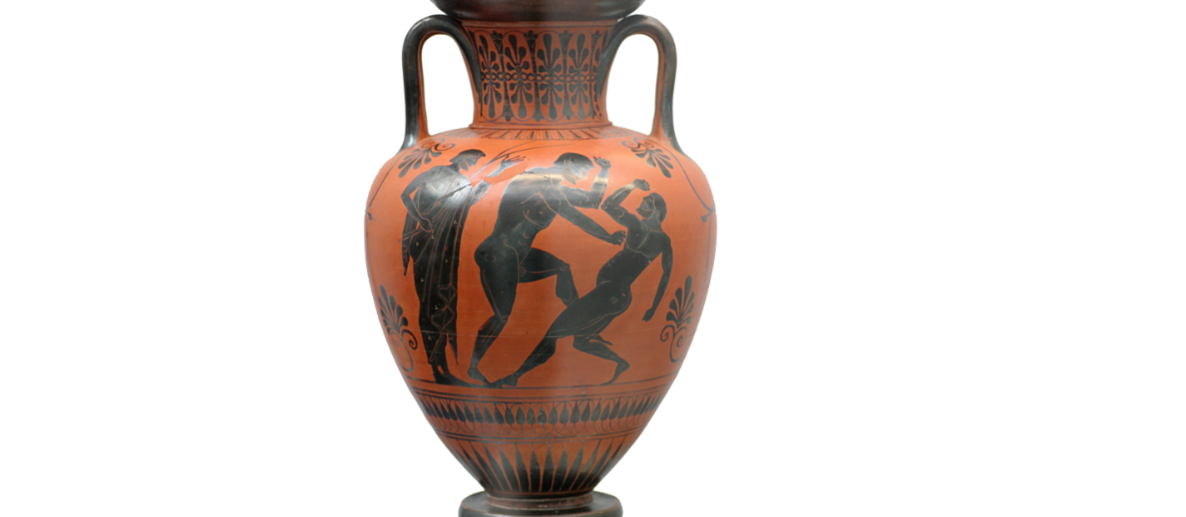In recent years, we have witnessed an undeniable advancement of LGBT rights through several legal cases and political campaigns. For many years, LGBT people had to remain silent and hide their sexual preference, but that’s not the case anymore. Sociologists suggest that this is nothing but the result of decades of oppression. Like other oppressed minorities, gay people have a reason to voice their hardships and accomplishments. However, violating and altering history in the name of gay pride is not necessary.
One historical situation that is often sourced in the name of gay pride is the ancient Greek society and several ancient Greek historical figures that are falsely portrayed as gay in pop culture. The relationship between Achilles and Patroclus is an example of this. In the Iliad, Homer describes a deep and loving friendship between the two men, but never explicitly casts the two as lovers. Many modern interpreters of the story, however, have felt comfortable with using the characters’ relationship as evidence of gay glorification in ancient Greek literature and culture.
Alexander the Great is another popular example. Even though the available historical sources clearly indicate that the Greek king had different female lovers each night, he is considered the most famous gay man of antiquity, simply because a screenwriter in Hollywood imagined him as one. In reality, Alexander the Great most likely slept with more women than Hugh Hefner! But how did we end up with these false misconceptions about ancient Greek society and homosexuality?
The whole thing officially opened up by Kenneth Dover’s work Greek Homosexuality in 1978. Since then, as MacDowell points out , homosexuality in ancient Greece “has been discussed a good deal, mainly from a sociological and anthropological point of view.” However, few mention Athenian laws against homosexuality. It wouldn’t be much of an exaggeration to speculate that a decorated and experienced historian such as Dover avoided this account of the official stance of Athens on homosexuality. Instead, he based his research and conclusions on certain pieces of such art as vase painting and the idealized depiction of homoerotic relationships described briefly by Plato in some of his works.
There’s no doubt that same-sex activity existed in ancient Greece, just like it always existed in every corner of the planet – in men, women, and even animals. What’s critical to understand though, is that homosexuality never flourished in Greece as so many people falsely believe today. The biggest misconception of all is that there was a term known as “homosexuality.” Contrary to popular belief, the word “homosexual” is a modern invention.
It was used for the first time in 1869 by the Hungarian physician Karoly Maria Benkert (1824-1882). As noted in an article on Livius.org: “In ancient Greece, there was not a word to describe homosexual practices: they were simply part of aphrodisia, love, which included men and women alike.”
To put it simply, some Greek men didn’t discriminate when it came to sex – to them any sexual activity was just “sexuality.” Not homosexuality or heterosexuality. They framed it as more on the terms of “giving” and “receiving”. Unless you were a woman, however, it was looked down upon to enjoy receiving. Interestingly, those who enjoyed “receiving” were stigmatized within the Athenian society and were kinaidoi(men who allowed other men to penetrate them). This was a degrading word, suggesting ancient Athens, the so-called open-minded Greek city-state of antiquity, wasn’t gay-friendly at all.
The rest of the ancient Greek city-states would be classified as “macho” societies nowadays, with Sparta being disapproving of men who engaged in homosexual activities. It was a general characteristic of macho societies that being dominant (or “giving”) was noble, while being submissive (“receiving”) was the opposite. For a Corinthian or a Spartan male to deliberately choose a submissive sexual role, he was seen as a type of traitor, one who accepted being ignoble for sexual pleasure, when he could be noble.
more at ancient-origins.net
Ask me anything
Explore related questions





